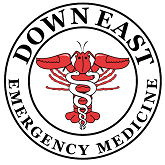Difficult Discussions - Medical Error Disclosure and Refusal of Medical Care
/Professionalism and related personal attributes such as ethics, humanism, and communication have played a central role in the major critiques and calls for reform in medical education over the past century. The Association of American Medical Colleges currently recommends professionalism and interpersonal skills (including communication) as core competencies to be included in the curricula of medical schools. In part 1 of "difficult discussions", we share our approach for two difficult patient discussions - medical error and refusal of medical care. This was recorded at the 2017 Tufts University School of Medicine Capstone Course.
Casey MacVane, MD, MPH
Jeffrey A. Holmes, MD
References
1. Medical School Objectives Writing Group. Report I: learning objectives for medical student education. Acad Med. 1999; 74: 13-18.
2. Association of American Medical Colleges. Contemporary Issues in Medicine: Communication in Medicine (Report III of the Medical School Objectives Project). Washington DC: Association of American Medical Colleges, 1999.
3. Swick HM, Szenas P, Danoff D, Whitcomb ME. Teaching professionalism in undergraduate medical education. JAMA. 1999; 282: 830-832.
4. Kao A, Lim M, Spevick J, Barzansky B. Teaching and evaluating school’s professionalism in US medical schools, 2002-2003. JAMA. 2003: 290: 1151-1152.
5. Shrank WH, Reed VA, Jernsteadt C. Fostering professionalism in medical education. A call for improved assessment and meaningful incentives. J Gen Intern Med. 2004; 19: 887-892.











